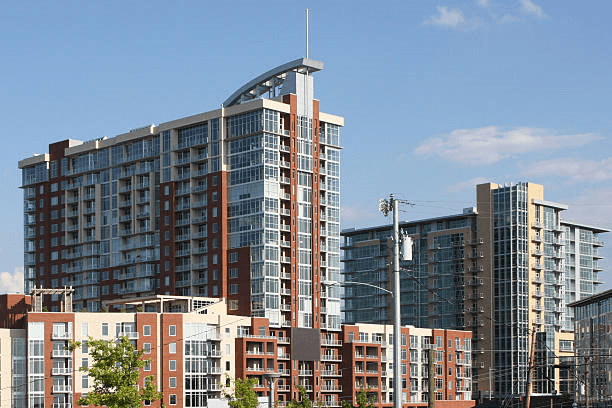Tight Rental Market: Understanding TN’s Low Apartment Vacancy Rate
The apartment vacancy rate in Tennessee is a crucial indicator of the state's housing market health, reflecting the balance between supply and demand for rental properties. As of recent data, Tennessee's vacancy rate for apartments stands at a relatively low level, signaling a robust demand for rental housing across the state.

In urban centers like Nashville, Memphis, Chattanooga, and Knoxville, where population growth and job opportunities continue to attract new residents, the apartment vacancy rate tends to be lower than in rural areas. These cities offer a diverse range of rental options, from luxury high-rises in downtown districts to affordable apartments in suburban neighborhoods, catering to a wide spectrum of renters.
One factor contributing to Tennessee's low apartment vacancy rate is the state's strong economy and job market. With industries ranging from healthcare and manufacturing to entertainment and tourism, Tennessee offers a wealth of employment opportunities, attracting workers from across the country. As a result, demand for rental housing remains high, keeping vacancy rates relatively low.
Additionally, the influx of young professionals and millennials into urban areas has contributed to the tightening of the rental market in Tennessee. Many young renters prefer the flexibility and convenience of apartment living, particularly in walkable neighborhoods with access to amenities like restaurants, shops, and public transportation. This demographic trend has further fueled demand for rental properties, putting downward pressure on vacancy rates.
Despite the overall low vacancy rate, some areas within Tennessee may experience higher vacancy rates than others, depending on factors such as location, market conditions, and the availability of housing stock. For example, rural areas or neighborhoods with a high concentration of student housing may see higher vacancy rates during certain times of the year, such as summer months or between academic semesters.
However, even in areas where vacancy rates are higher, the demand for rental housing in Tennessee remains strong, driven by factors such as population growth, job opportunities, and lifestyle preferences. As a result, landlords and property managers in these areas may still experience steady demand for their rental properties, albeit with some fluctuations throughout the year.
Looking ahead, experts predict that Tennessee's apartment vacancy rate is likely to remain relatively low in the near term, driven by continued population growth, economic expansion, and ongoing investment in real estate development. As the state's cities continue to attract new residents and businesses, the demand for rental housing is expected to remain robust, keeping vacancy rates low and rental markets competitive across Tennessee.
Economic Factors Contributing to Low Vacancy Rate
Tennessee's economy stands as a cornerstone of prosperity and growth in the Southeastern United States, fueled by diverse industries, strategic geographic location, and a favorable business climate. As a result, the state has experienced sustained economic expansion, attracting businesses, residents, and investors from around the country.
One of the key drivers of Tennessee's robust economy is its strategic location as a transportation hub. Situated at the crossroads of major interstate highways, railways, and waterways, Tennessee offers businesses easy access to regional and national markets. This connectivity has attracted a wide range of industries to the state, including manufacturing, logistics, and distribution, which benefit from efficient transportation networks and access to key markets.
Manufacturing plays a particularly significant role in Tennessee's economy, with the state boasting a strong presence in industries such as automotive, aerospace, and advanced manufacturing. Major automotive manufacturers like Nissan, Volkswagen, and General Motors have established operations in Tennessee, contributing to a thriving supply chain and supporting thousands of jobs across the state. Similarly, the aerospace industry has flourished in Tennessee, with companies like Boeing, Lockheed Martin, and Northrop Grumman investing in research, development, and manufacturing facilities.
In addition to manufacturing, Tennessee's economy is bolstered by a growing healthcare sector, fueled by the presence of major healthcare systems, research institutions, and medical device companies. With renowned healthcare facilities like Vanderbilt University Medical Center in Nashville and St. Jude Children's Research Hospital in Memphis, Tennessee has become a destination for cutting-edge medical care and research, attracting patients and professionals from around the world.
Furthermore, Tennessee's tourism industry contributes significantly to the state's economic vitality, generating billions of dollars in revenue annually and supporting thousands of jobs. From the iconic attractions of Nashville, Memphis, and Gatlinburg to the scenic beauty of the Great Smoky Mountains and the Mississippi River, Tennessee offers a wealth of experiences for visitors to explore and enjoy. Whether it's attending live music concerts, exploring historic landmarks, or experiencing outdoor adventures, tourists flock to Tennessee year-round, providing a steady stream of revenue for businesses and communities across the state.
The strength of Tennessee's economy, coupled with its growing population and diverse job opportunities, has led to increased demand for housing across the state. As more businesses expand or relocate to Tennessee, and as the state continues to attract new residents and visitors, the demand for rental properties has remained robust. This high demand, combined with limited supply in certain markets, has contributed to a low vacancy rate in Tennessee, as landlords and property owners find little difficulty in filling available units.
In conclusion, Tennessee's economy is a driving force behind the state's low vacancy rate, as strong job growth, diverse industries, and a favorable business climate continue to attract businesses and residents alike. As Tennessee's economy continues to thrive, the demand for housing is expected to remain strong, ensuring that the state's apartment market remains competitive and vibrant for years to come.



